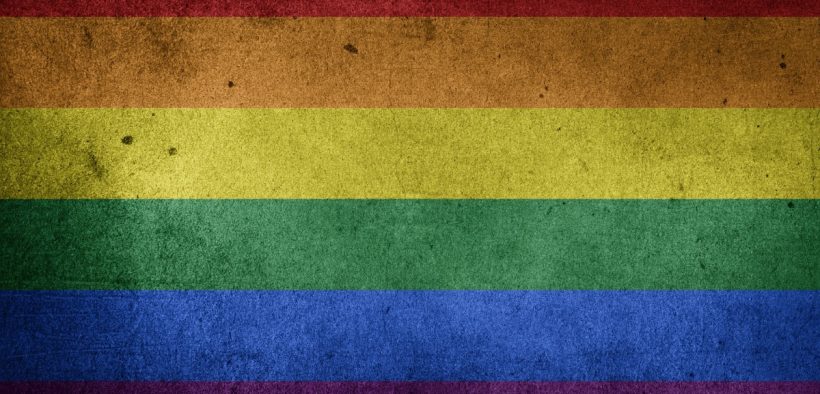“Fairness for All” Poses Threat To Christian Doctrine, Christian Ministries

A Utah congressman, Republican Rep. Chris Stewart, introduced a bill Dec. 6 that says it would ban discrimination against LGBTQ people. The bill, co-sponsored by eight other Republicans, also claims to protect religious institutions that uphold traditional beliefs about marriage and sexuality, Religion News Service reported. But does it?
Some conservative groups aren’t buying that the bill is good thing for Christian ministries and their biblical convictions.
John Stonestreet, president of The Colson Center for Christian Worldview, described the bill as “the wrong piece of legislation at the wrong time.”
“The Act would enshrine into law something that simply is not true, and for Christians that’s got to be a non-starter: that sexual orientation and gender identity are equal to race, that they are somehow immutable, something someone is born with,” said Stonestreet.
Stonestreet said “the ‘born with’ idea is a useful fiction created by the early proponents of the gay-rights movement to win public approval for their cause.” He added, “They succeeded, of course, but it does not make the fiction any more true.”
Fairness For All?
The so-called “Fairness for All” bill, is the culmination of a three-year effort to bridge the divide between LGBTQ people and religious conservatives. The purpose of the bill is to offer an alternative to the Equality Act, which passed the House of Representatives in May but is blocked in the Senate and unlikely to come up for a vote any time soon, RNS reported. That bill included broad protections for the LGBTQ community but few exemptions for churches, schools and charities that object to homosexuality and same-sex marriage on religious grounds.
Stewart claims the new bill helps “settle the legal questions and get back to the business of loving our neighbors.” He noted, “All of God’s children, regardless of sexual orientation or religion, deserve dignity, respect, and the right to pursue happiness.”
Like the Equality Bill, Stewart’s bill would expand federal laws that prohibit discrimination based on race, color and national origin to include sexual orientation and gender identity. If passed, it would extend legal protections to LGBTQ people in housing, employment, public accommodations, commercial credit and jury duty. Right now, RNS reported, 22 states and Washington, D.C., provide some or all of those protections to LGBTQ people, according to the Williams Institute at UCLA.
Absent any federal laws, the Supreme Court is expected to rule next year on two cases involving job discrimination against LGBTQ people. The court will have to decide if the Civil Rights Act of 1964 can also be applied to LGBTQ.
The new bill addresses “a non-issue,” Stonestreet contends.
In the 1960s, Stonestreet noted, “the Civil Rights Act addressed a very real problem: There were entire swaths of the country where African Americans couldn’t find a hotel room, buy gas, or get a meal. And so public accommodations were necessary so African Americans could fully participate in society. That most certainly is not the case today with the so-called ‘sexual minorities.’” He continued, “When two men targeted cakeshop owner Jack Phillips to force him to design a cake for their same-sex wedding, they knew full well that there were plenty of cake shops nearby that would gladly do what they asked,” he said.
Another issue with the Fairness for All Act, he said, is its exemptions “would not apply to for-profit businesses with 14 or fewer employees.”
“In other words, if you’re a Christian business owner, and not a church or a religious non-profit, you’re on the wrong side of the law — outside of the Act’s protections. Meaning Fairness for All isn’t really fairness for all,” he wrote.
But prospects for the passage of the “Fairness for All” bill did not appear especially bright, given its Republican-only support thus far, RNS reported. The bill may mark the first time that the Council for Christian Colleges and Universities (CCCU), the Church of Jesus Christ of Latter-day Saints (LDS) and the Seventh-day Adventist Church have championed federal legal protections for sexual orientation and gender identity. All three gave the bill their blessing.
Work on the bill began shortly after 2015 when the Utah Legislature passed a law balancing rights for LGBTQ and religious people in that state. The law, known as “the Utah compromise,” was hailed by the LDS Church, which is opposed to same-sex marriage but supports a ban on discrimination in employment and housing for LGBTQ people, so long as it provides exemptions for church groups.
Stewart, who is Mormon, said during a press conference announcing the bill, “neither side has to lose in order for the other side to win,” WORLD reported.
But last month, a broad coalition of Christian groups sent a letter to House Republican leaders opposing the bill, WORLD reported. Those organizations included the Heritage Foundation, Family Research Council, Ethics and Religious Liberty Commission, and Concerned Women for America. The groups contend the new bill goes too far in extending sexual orientation and gender identity protections to public accommodations, which the Utah Compromise does not address.



